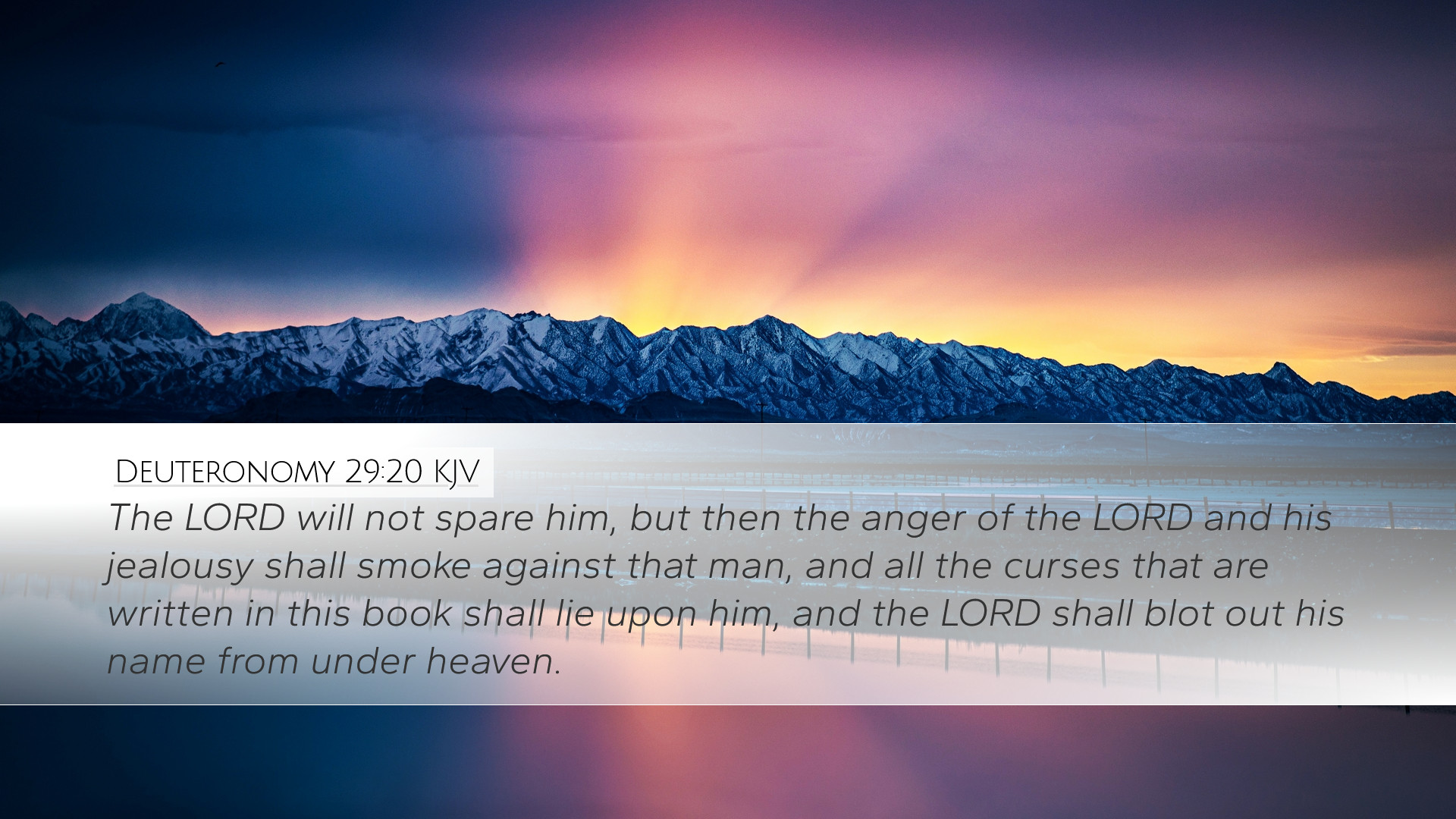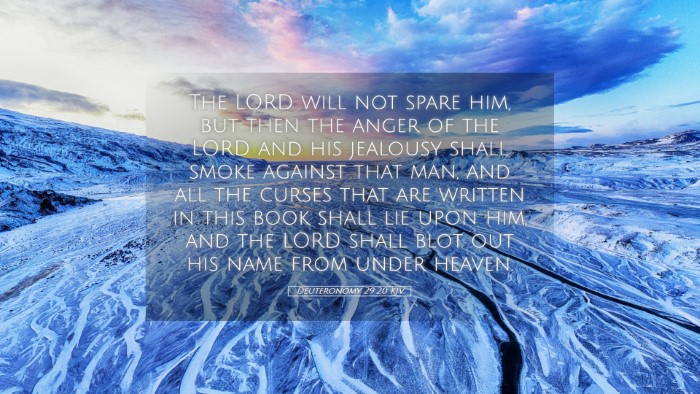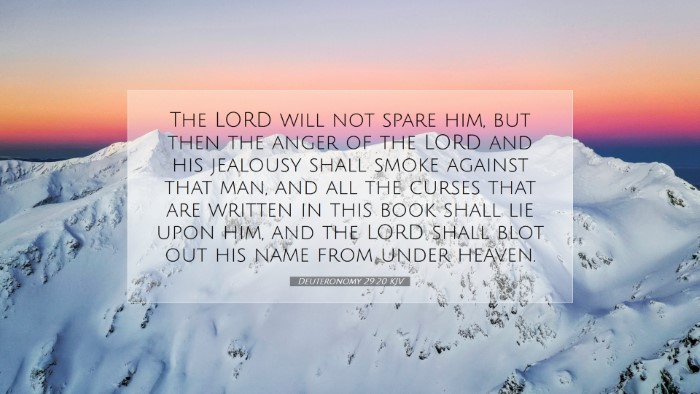Commentary on Deuteronomy 29:20
Verse Context: Deuteronomy 29:20 reads: "The LORD will not spare him; but then the anger of the LORD and his jealousy shall smoke against that man, and all the curses that are written in this book shall lie upon him, and the LORD shall blot out his name from under heaven." This verse serves as a sobering reminder of the consequences of disobedience to God.
Understanding the Meaning
This verse addresses the severe ramifications that follow the rejection of God's covenant. The phrase "The LORD will not spare him" emphasizes the certainty of divine judgment for those who turn away from God. The imagery of the "anger of the LORD" and "jealousy" signifies God's righteous indignation, motivated not by caprice, but by a profound sense of justice and commitment to His covenant people.
Insights from Public Domain Commentaries
Matthew Henry's Commentary
Matthew Henry reflects on the gravity of God's judgment. He argues that divine anger is not whimsical but is a response to persistent disobedience and rebellion against the covenant. Henry emphasizes that "jealousy" in this context refers to God's protective nature over His people and His holiness. He notes that God's curses serve as reminders of the seriousness of engaging with the covenant. The mention of "blotting out his name" indicates a definitive separation from God's people, which is both terrifying and serious.
Albert Barnes' Notes on the Bible
Albert Barnes elaborates on the implications of God's anger and the consequences that follow the violation of covenant obligations. He points out that the term "anger" signifies God's vehement disapproval of sin, while "jealousy" highlights His demand for faithfulness from His people. Barnes stresses that this covenantal relationship is exclusive and requires full devotion. He also connects this verse to the broader theme of accountability, suggesting that neglecting God's laws invites significant retribution and spiritual loss, notably the elimination of one's name from the Book of Life.
Adam Clarke's Commentary
Adam Clarke discusses the severity of the warnings given in this verse. He provides historical context, suggesting that Moses uses this vivid language to instill a fear of divine disfavor among the Israelites. Clarke interprets “the curses that are written in this book” as encompassing the sanctions prescribed in the Law for disobedience. He eloquently describes how the "blotting out" signifies a total severance of fellowship with God, which serves as a caution for all believers. Clarke emphasizes that the Israelites must recognize the seriousness of their commitment to God and act with integrity towards His commands.
Theological Implications
- Divine Judgment: The verse serves as a powerful reminder of the reality of divine judgment. It compels believers to consider the weight of their actions and the potential for consequences.
- Covenantal Faithfulness: The verse underscores the importance of remaining faithful to God's covenant. Believers are called to maintain integrity in their relationship with God to avoid repercussions.
- God's Nature: The dual themes of anger and jealousy demonstrate God’s nature—His holiness demands a response against sin while His jealousy illustrates His commitment to His people.
Practical Applications
This verse challenges pastors, students, and scholars to reflect on their commitment to God and inspires a godly fear of consequences for disobedience. It emphasizes the need for true repentance and vigilance in faith:
- Encouragement for Faithfulness: Those in ministry are encouraged to preach the importance of remaining steadfast in faith, ensuring their flock understands the seriousness of covenantal obligations.
- Reflection on Personal Conduct: Individuals are prompted to reassess their lives, ensuring alignment with God's word to avoid the blight of being "blotted out."
- Prayer for Repentance: In acknowledging the possibility of divine judgment, believers are led to earnestly pray for personal and communal repentance, fostering unity under God's commands.
Conclusion
Deuteronomy 29:20 serves as a vital text for theological reflection and practical application. The insights from Matthew Henry, Albert Barnes, and Adam Clarke underscore the grave implications of turning away from a covenant with God, inviting a deeper understanding of His justice, mercy, and the seriousness of commitment. As we reflect on this verse, we are called to a renewed faithfulness, recognizing the depth of our relationship with the Creator and the seriousness with which He views our covenantal obligations.


